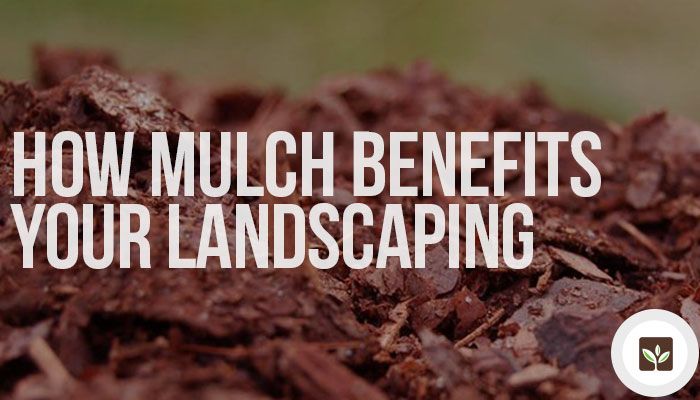Mulching, or adding a protective layer of organic material around plants and bare soil, offers many benefits for your landscape and garden. If you're on the fence about professional mulch blowing or you're just unsure about the actual benefits of using mulch, here's what you need to know. Mulch Inhibits Weeds Weeds are unsightly and deprive plants of sunlight, water, and nutrients in the soil. By adding a protective layer of mulch that's 2-4 inches thick, weeds will be unable to receive the sunlight they need to thrive. Mulch works as a physical barrier as most weeds lack the energy to sprout through two or more inches of shredded bark or another material. Mulch Guards Against Temperature Changes In areas with cold winters, mulch works to protect roots from frost-heaving. This is a process in which plants get pushed from the ground by natural soil contraction and expansion as the ground cycles between cold and warm. During the warm summer months, a layer of mulch protects plants from becoming dry and overheated. Mulch Retains Moisture in the Soil Mulch is a natural sponge that stores water that the soil can absorb when it's needed. The proper thickness of mulch will also reduce evaporation of moisture from the soil to keep plant roots hydrated, even when the weather is dry and hot. When you have blown-in mulch installed in your landscaping, you will not need to water your plants as often. Controls Garden Pests Some types of organic mulch contain natural oils and chemicals that deter pests. As these mulches decompose, they change soil conditions to encourage beneficial bacteria, insects, and fungi. If you choose cypress or cedar mulch, the oils in the bark naturally repel many types of insects and pests. By adding organic material to your soil, you are making your garden or flower bed healthier and more resistant to disease and pests without the cost or dangers of pest control. Reduces Soil Erosion Mulch acts as a barrier to reduce the effect of heavy rainfall. This can keep your soil from getting washed out during a storm. Shades Seedlings and Delicate Plants Seedlings are most at risk of damage from intense sun and they lose moisture very quickly. A layer of fine mulch is an effective way to shade these delicate seedlings until they grow stronger by acting as an umbrella. For mature but delicate plants, mulch also serves as an important form of physical protection: the mulch protects plants from potentially damaging mud-splash. Improve the Appearance of Your Lawn Blown-in mulch is a cost-effective and fast way to dramatically transform your landscape. Mulch can be used to fill empty spaces with attractive color and texture and make your prized plants pop. Mulch won't compete with plants and other features; it will enhance them. You have spent time and effort choosing plants for your landscaping and designing a beautiful lawn. Mulching is one of the most important things you can do to help your lawn and garden thrive year after year.
How Mulch Benefits Your Landscaping
Mulching, or adding a protective layer of organic material around plants and bare soil, offers many benefits for your landscape and garden. If you're on the
